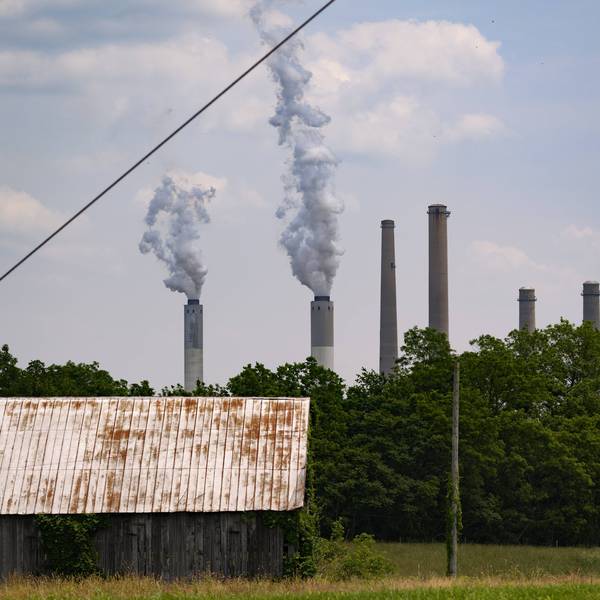Two dozen fossil fuel infrastructure projects that President Joe Biden can block via executive action would produce as much annual greenhouse gas pollution as 404 coal-fired power plants--or the equivalent of roughly 20% of all 2019 U.S. emissions--according to a report published Tuesday.
"Building new fossil fuel infrastructure and increasing U.S. emissions at a time when we must persuade other countries to reduce their use of fossil fuels sends the wrong signal to every nation."
The Oil Change International briefing found that the combined greenhouse gas (GHG) emissions of the analyzed projects--which include the Line 3, Dakota Access, and Mountain Valley pipelines and 20 liquified gas terminals--"would be larger than all current U.S. coal power plants combined, moving the United States away from Paris agreement commitments."
The total estimated emissions of the two dozen projects are far greater than those of the 294 coal-fired power plants currently operating in the continental United States, the report found.
The Biden administration "will make decisions on these and additional projects in the next three years," the paper notes. "Stopping these fossil fuel infrastructure projects would prevent a drastic increase in GHG pollution at a time when it is imperative to decrease GHG emissions to adhere to domestic and international climate goals and commitments, including the Paris agreement that President Biden rejoined."
The new report comes amid a week of #PeopleVsFossilFuels climate protests in Washington, D.C., and as world leaders prepare to attend the United Nations Climate Change Conferense--also known as COP 26--in Glasgow, Scotland at the end of the month.
"We urge the Biden administration to course-correct," Oil Change International research analyst Kyle Gracey said in a statement. "Other nations are looking closely at the U.S. and President Biden, who will set the tone for how we address this crisis as a global community. Building new fossil fuel infrastructure and increasing U.S. emissions at a time when we must persuade other countries to reduce their use of fossil fuels sends the wrong signal to every nation."
"As alarming as these projected emissions are," Gracey added, "the silver lining is that President Biden has the authority and opportunity to stop these projects."




